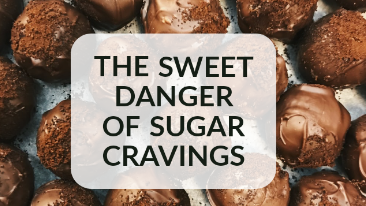

Having sugar too often but not realizing it? Sugar is often seen as a harmless pleasure, but its impact on our health is anything but benign. According to the World Health Organization (WHO), high sugar intake is a major contributor to the global obesity epidemic. In the United States alone, nearly 70% of adults are overweight or obese, and excessive sugar consumption plays a significant role in this crisis. The average American consumes approximately 17 teaspoons of added sugar daily, far exceeding the recommended limit of six teaspoons for women and nine for men.
The dangers don’t stop at weight gain. Studies have shown that high sugar consumption can lead to insulin resistance, a precursor to type 2 diabetes. When the body becomes overwhelmed with sugar, it begins to lose its ability to regulate blood glucose levels, setting the stage for serious health complications. Moreover, research suggests that sugar can have detrimental effects on mental health, contributing to anxiety and depression, as well as exacerbating mood swings.
The Chemical Hook
What makes sugar so addictive? The answer lies in our brain chemistry. When we consume sugar, our brain releases dopamine, a neurotransmitter associated with pleasure and reward. This creates a cycle of cravings that can be difficult to break. The more sugar we consume, the more our brains crave it, leading to a seemingly insatiable desire for sweetness. That is the reason why most people get on a downward spiral or lack of motivation to cut down on sugar. Over time, this can lead to a greater accumulation of fat, which may turn into fatty liver disease, a contributor to diabetes, which raises your risk for heart disease. Consuming too much added sugar can raise blood pressure and increase chronic inflammation, both of which are pathological pathways to heart disease
Breaking the Cycle
So how can individuals combat their sugar cravings and improve their overall health? Here are some practical tips to help curb those pesky sweet tooth urges:
Educate Yourself: Knowledge is power. Read food labels and become aware of hidden sugars in products. Items labeled as “fat-free” or “healthy” can still contain significant amounts of sugar.
Opt for Natural Sweeteners: Instead of refined sugar, consider using natural alternatives like honey, maple syrup, or stevia. While these should still be consumed in moderation, they can satisfy your sweet cravings without the same adverse health effects.
Incorporate Whole Foods: Fill your diet with whole, unprocessed foods such as fruits, vegetables, nuts, and whole grains. These foods not only provide essential nutrients but also help regulate blood sugar levels, reducing cravings for sweets.
Stay Hydrated: Sometimes, cravings can be mistaken for thirst. Drink plenty of water throughout the day to stay hydrated and help curb unnecessary cravings.
Eat Regularly: Skipping meals can lead to intense sugar cravings later in the day. Aim to eat balanced meals that include protein, fiber, and healthy fats to maintain steady energy levels and minimize the urge for sugar.
Manage Stress: Stress can trigger cravings for sugary comfort foods. Engage in stress-reducing activities such as exercise, meditation, or yoga to help mitigate these urges.
Practice Mindful Eating: Pay attention to what you eat and savor every bite. Mindful eating can help you recognize when you’re truly hungry versus when you’re reaching for sugar out of habit or boredom.
Seek Support: If sugar cravings feel overwhelming, consider joining a support group or consulting with a nutritionist. Having a network can provide encouragement and accountability as you make healthier choices.
Conclusion
This is a world with sugar-laden products, it’s essential to remain vigilant about our consumption. The hidden dangers of sugar can have lasting effects on our health, from weight gain to chronic diseases. By understanding these risks and implementing effective strategies to manage cravings, we can reclaim our health and make informed choices about what we consume.
The next time you find yourself reaching for a sugary snack, pause for a moment. Consider the toll that sugar can take on your body and mind, and choose a healthier alternative. Your future self will thank you.